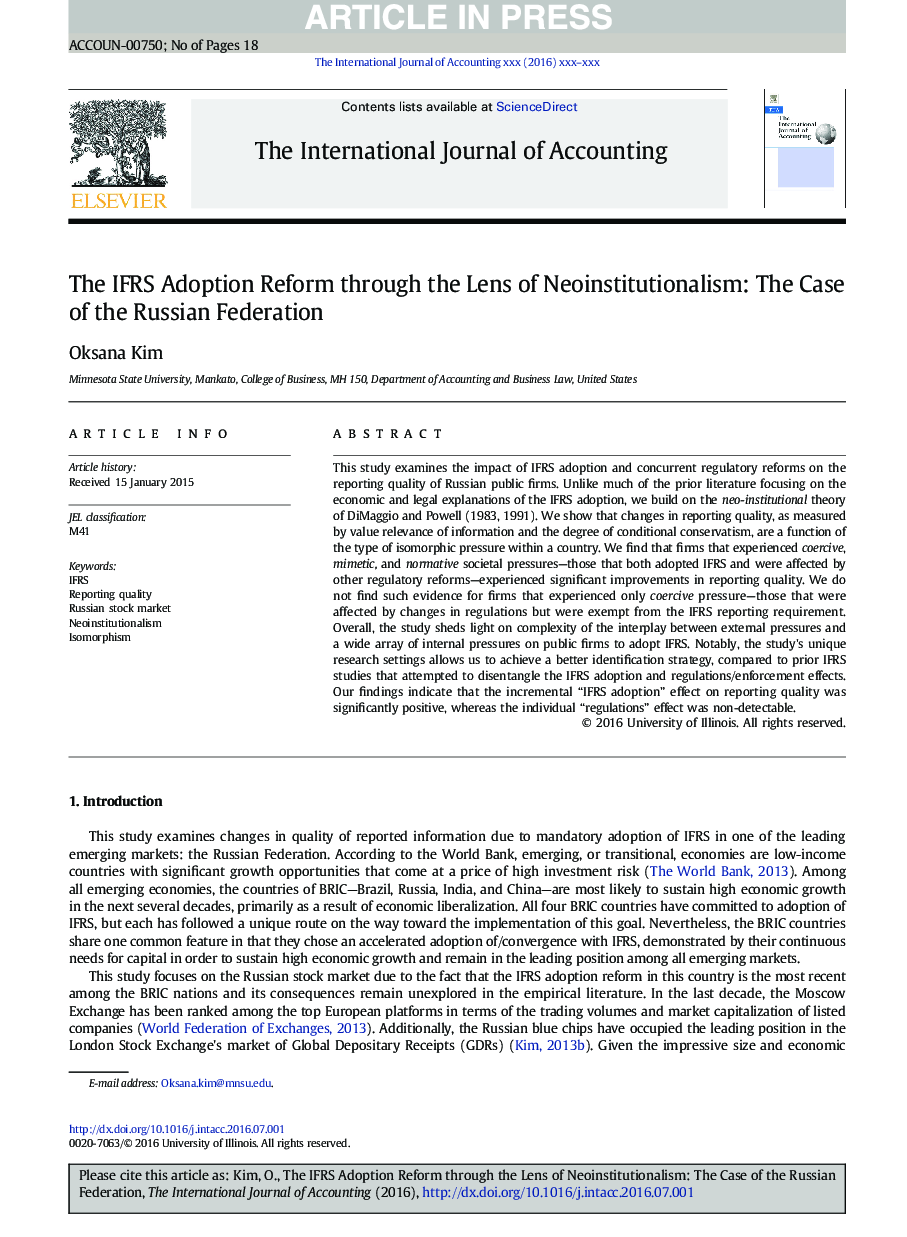| Article ID | Journal | Published Year | Pages | File Type |
|---|---|---|---|---|
| 7415481 | The International Journal of Accounting | 2016 | 18 Pages |
Abstract
This study examines the impact of IFRS adoption and concurrent regulatory reforms on the reporting quality of Russian public firms. Unlike much of the prior literature focusing on the economic and legal explanations of the IFRS adoption, we build on the neo-institutional theory of DiMaggio and Powell (1983, 1991). We show that changes in reporting quality, as measured by value relevance of information and the degree of conditional conservatism, are a function of the type of isomorphic pressure within a country. We find that firms that experienced coercive, mimetic, and normative societal pressures-those that both adopted IFRS and were affected by other regulatory reforms-experienced significant improvements in reporting quality. We do not find such evidence for firms that experienced only coercive pressure-those that were affected by changes in regulations but were exempt from the IFRS reporting requirement. Overall, the study sheds light on complexity of the interplay between external pressures and a wide array of internal pressures on public firms to adopt IFRS. Notably, the study's unique research settings allows us to achieve a better identification strategy, compared to prior IFRS studies that attempted to disentangle the IFRS adoption and regulations/enforcement effects. Our findings indicate that the incremental “IFRS adoption” effect on reporting quality was significantly positive, whereas the individual “regulations” effect was non-detectable.
Related Topics
Social Sciences and Humanities
Business, Management and Accounting
Accounting
Authors
Oksana Kim,
